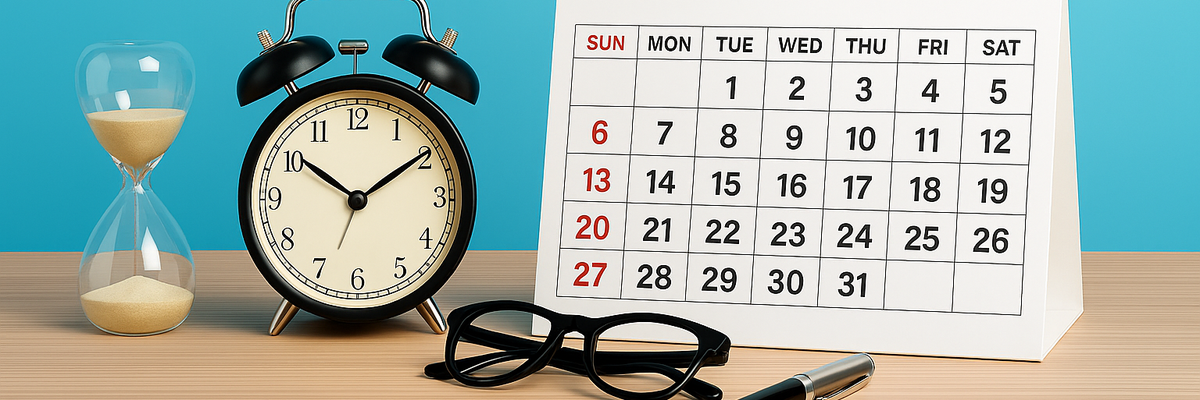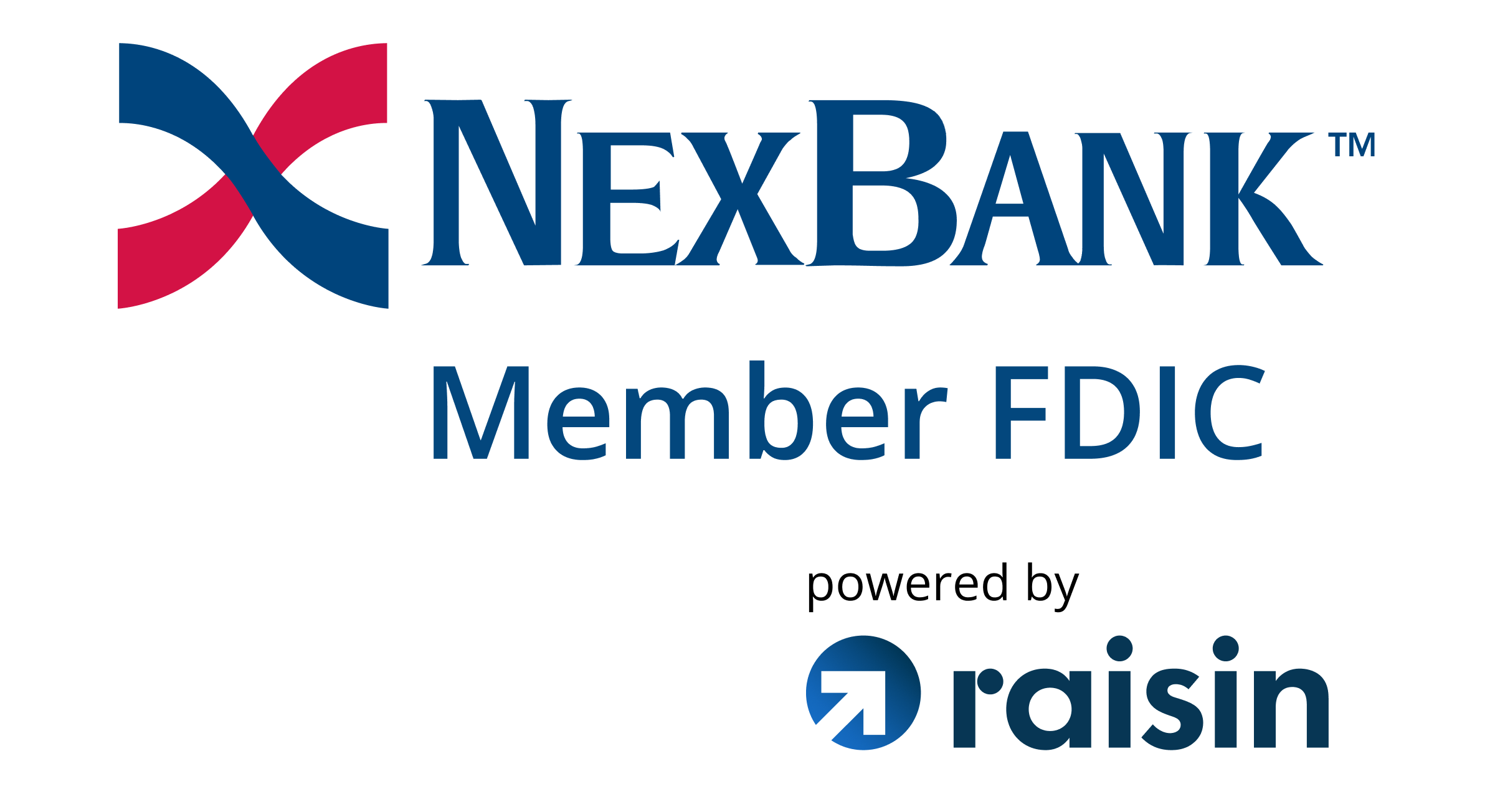Best CD Rates Today, July 8, 2025: Up to 4.60% APY

As we move through the second week of July, CD rates are still looking strong -- but they may not stay that way for long. The Fed isn't meeting again until the end of the month, giving savers a narrow window to take advantage of current high yields. With rate cuts still expected at some point this year, locking in a solid return now could pay off.
Short-term CDs continue to offer some of the most attractive options. A standout right now is a 6-month CD with a 4.60% APY.
If you're looking for a safe and steady way to grow your savings, now could be a smart time to act. Here are the best CD rates available today.
- Northern Bank Direct, 6 months: 4.60% APY
- United Fidelity Bank, 6 months: 4.55% APY
- United Fidelity Bank, 10 months: 4.50% APY
- Northern Bank Direct, 9 months: 4.50% APY
- Presidential Bank, 7 months: 4.50% APY
Featured pick: Now could be one of the last chances to lock in a yield this high before rates start to fall. LendingClub's 14-month CD currently offers 4.25% APY with just a $500 minimum deposit. Check out LendingClub's 14-month CD here.
Data source: Issuing banks. Rates are accurate as of July 7, 2025.
Best CD Rates at Top Banks in August 2025
On LendingClub's Secure Website.
On Synchrony Bank's Secure Website.
On Discover Bank's Secure Website.
Unlike other banking products we evaluate, certificates of deposit (CDs) do not receive a star rating from us. This approach is due to the frequent updates in interest rates and terms associated with CDs. Instead, we highlight CDs on our best-of list pages based on their annual percentage yield (APY) and the fees associated with early withdrawals. Our top CD selections typically offer competitive APYs without complex qualification tiers, low early withdrawal penalties, reliable strong brand reliability, and user-friendly features.
Motley Fool Money focuses exclusively on standard CDs and does not review IRA CDs, bump-up CDs, callable CDs, or other specialized CD accounts.
Our aim is to maintain a balanced list featuring top-scoring products from reputable brands offering competitive APYs and standout features. Learn more about how Motley Fool Money rates bank accounts.
Unlike other banking products we evaluate, certificates of deposit (CDs) do not receive a star rating from us. This approach is due to the frequent updates in interest rates and terms associated with CDs. Instead, we highlight CDs on our best-of list pages based on their annual percentage yield (APY) and the fees associated with early withdrawals. Our top CD selections typically offer competitive APYs without complex qualification tiers, low early withdrawal penalties, reliable strong brand reliability, and user-friendly features.
Motley Fool Money focuses exclusively on standard CDs and does not review IRA CDs, bump-up CDs, callable CDs, or other specialized CD accounts.
Our aim is to maintain a balanced list featuring top-scoring products from reputable brands offering competitive APYs and standout features. Learn more about how Motley Fool Money rates bank accounts.
Is now a good time to open a CD?
If you're after stability and steady growth, this could be a good moment to open a CD. Although some banks have started trimming rates in anticipation of future Fed cuts, current yields are still among the highest we've seen in years.
With the Fed's next meeting just a few weeks away, locking in a competitive rate now could help you stay ahead of any upcoming drops.
CDs are a low-risk option that offer guaranteed returns and the safety of FDIC insurance -- up to $250,000 per depositor, per bank.
Yes, the stock market might offer more upside, but it also comes with more uncertainty. If you'd rather avoid the swings and prefer something more predictable, a CD could be a smart choice.
Open a CD with $10,000 to earn almost $500
Your earnings from a CD come down to three things: the interest rate, how much you put in, and the length of the term.
For example, let's say you deposit $10,000 into a 14-month CD with a 4.25% APY. By the time it matures, you'd earn roughly $498 in interest -- all while keeping your original deposit safe and untouched.
That's a nice bump compared to most traditional savings accounts, where rates tend to be much lower and can change at any time. Locking in a top CD rate today, like LendingClub's 14-month CD, can help you maximize your returns before rates drop. Open a LendingClub CD today.
How to open a CD
Getting started with a certificate of deposit is quick and hassle-free. You can open one in just a few simple steps, and the whole process only takes a few minutes. Here's what to do:
- Find the best offer. Start by comparing CD rates and term lengths across different banks and credit unions. Online banks often have higher yields than traditional ones, so it's worth exploring all your options.
- Pick your deposit amount. Decide how much you want to set aside. Since most CDs don't allow additional deposits and charge a penalty for early withdrawal, choose an amount you won't need until the term ends.
- Apply for the CD. You can open a CD either online or by visiting a branch. Have your personal information handy -- such as a valid ID, your Social Security number, and bank account details.
- Fund the account. Transfer money from your existing account into the CD. Once the funds are in, your rate and term are locked in for the duration.
- Track your maturity date. Make note of when your CD matures. Set a reminder so you can decide whether to withdraw the funds or roll them into a new CD when the time comes.
When you're ready, click here to explore the best CD rates and open a high-yield CD today.
CDs vs. HYSAs: Get a high APY without losing access to your cash
Want to earn solid interest but still have the freedom to use your money? A high-yield savings account might be a better option than a CD. Here's why HYSAs offer more flexibility:
- Set it and forget it -- Just deposit your money and let it grow. There's no need to worry about tracking CD maturity dates.
- No time commitment -- You're free to add or withdraw funds as needed, without facing early withdrawal penalties.
- Strong APYs -- Many HYSAs are offering interest rates that are just as good, or better, than short-term CDs.
- Quick access -- Transfers to and from your account are fast and easy when life throws something unexpected your way.
You don't have to lock up your cash to get a great return.
One standout right now is SoFi Checking and Savings (Member FDIC). This top-rated account offers up to 3.80% annual percentage yield (APY) on savings with qualifying direct deposits. It's an easy way to boost your savings without locking up your cash. Click here to learn more.
Our Picks for the Best High-Yield Savings Accounts of 2025
| Product | APY | Min. to Earn | |

SoFi Checking and Savings
Member FDIC.
APY
up to 3.80%
Rate info
Earn up to 4.50% Annual Percentage Yield (APY) on SoFi Savings with a 0.70% APY Boost (added to the 3.80% APY as of 8/5/25) for up to 6 months. Open a new SoFi Checking & Savings account and enroll in SoFi Plus by 9/3/25. Rates variable, subject to change. Terms apply at sofi.com/banking#2. SoFi Bank, N.A. Member FDIC.
SoFi members who enroll in SoFi Plus with Eligible Direct Deposit or by paying the SoFi Plus Subscription Fee every 30 days or SoFi members with $5,000 or more in Qualifying Deposits during the 30-Day Evaluation
Period can earn 3.80% annual percentage yield (APY) on savings balances (including Vaults) and 0.50% APY on checking balances. There is no minimum Eligible Direct Deposit amount required to qualify for the stated
interest rate. Members without either SoFi Plus or Qualifying Deposits, during the 30-Day Evaluation Period will earn 1.00% APY on savings balances (including Vaults) and 0.50% APY on checking balances. Interest rates
are variable and subject to change at any time. These rates are current as of 1/24/25. There is no minimum balance requirement. If you have satisfied Eligible Direct Deposit requirements for our highest APY but do not see
3.80% APY on your APY Details page the day after your Eligible Direct Deposit arrives, please contact us at 855-456-7634. Additional information can be found at http://www.sofi.com/legal/banking-rate-sheet. See the SoFi
Plus Terms and Conditions at https://www.sofi.com/terms-of-use/#plus.
Min. to earn
$0
Open Account for SoFi Checking and Savings
On SoFi's Secure Website. |
up to 3.80%
Rate info
Earn up to 4.50% Annual Percentage Yield (APY) on SoFi Savings with a 0.70% APY Boost (added to the 3.80% APY as of 8/5/25) for up to 6 months. Open a new SoFi Checking & Savings account and enroll in SoFi Plus by 9/3/25. Rates variable, subject to change. Terms apply at sofi.com/banking#2. SoFi Bank, N.A. Member FDIC.
SoFi members who enroll in SoFi Plus with Eligible Direct Deposit or by paying the SoFi Plus Subscription Fee every 30 days or SoFi members with $5,000 or more in Qualifying Deposits during the 30-Day Evaluation
Period can earn 3.80% annual percentage yield (APY) on savings balances (including Vaults) and 0.50% APY on checking balances. There is no minimum Eligible Direct Deposit amount required to qualify for the stated
interest rate. Members without either SoFi Plus or Qualifying Deposits, during the 30-Day Evaluation Period will earn 1.00% APY on savings balances (including Vaults) and 0.50% APY on checking balances. Interest rates
are variable and subject to change at any time. These rates are current as of 1/24/25. There is no minimum balance requirement. If you have satisfied Eligible Direct Deposit requirements for our highest APY but do not see
3.80% APY on your APY Details page the day after your Eligible Direct Deposit arrives, please contact us at 855-456-7634. Additional information can be found at http://www.sofi.com/legal/banking-rate-sheet. See the SoFi
Plus Terms and Conditions at https://www.sofi.com/terms-of-use/#plus.
|
$0
|
Open Account for SoFi Checking and Savings
On SoFi's Secure Website. |

NexBank High-Yield Savings Account from Raisin
Member FDIC.
APY
4.31%
Min. to earn
$1
Open Account for NexBank High-Yield Savings Account from Raisin
On Raisin's Secure Website. |
4.31%
|
$1
|
Open Account for NexBank High-Yield Savings Account from Raisin
On Raisin's Secure Website. |

American Express® High Yield Savings Account
Member FDIC.
APY
3.50%
Rate info
3.50% annual percentage yield as of August 27, 2025. Terms apply.
Min. to earn
$0
Open Account for American Express® High Yield Savings Account
On American Express's Secure Website. |
3.50%
Rate info
3.50% annual percentage yield as of August 27, 2025. Terms apply.
|
$0
|
Open Account for American Express® High Yield Savings Account
On American Express's Secure Website. |
-
Sources
FAQs
-
When a CD reaches its maturity date, you'll have a short window -- usually seven to 10 days -- to withdraw your money or move it into a new CD. If you don't take action, the bank may automatically roll it into a new CD, often at a different rate or term.
-
Yes, certificates of deposit are considered very safe. CDs offered by FDIC-insured banks or NCUA-insured credit unions are protected up to $250,000 per depositor, per institution, which means your principal is secure even if the bank or credit union fails.
-
The biggest downside of a certificate of deposit is the lack of liquidity. When you invest in a CD, your money is locked in for a fixed term, and withdrawing it early can result in loss of interest. This means you have less flexibility to access your funds if you need them before the CD matures.
Our Research Expert
Annual Percentage Yield (APY) is subject to change at any time without notice. Offer applies to personal non-IRA accounts only. Fees may reduce earnings. For CD accounts, a penalty may be imposed for early withdrawals. After maturity, if your CD rolls over, you will earn the offered rate of interest in effect at that time. Visit synchrony.com/banking for current rates, terms and account requirements. Member FDIC.





